In October 2021, Florida State University hired Richard McCullough as president—and it would be the last university presidential search in Florida to happen without Florida Gov. Ron DeSantis’ interference.
In 2023, after the retirement of Florida Atlantic University President John Kelly, the governor attempted to dictate the choice of the school’s next president. Two days after the search committee failed to make that choice for finalist—which was then-State Rep. Randy Fine—State University System Chancellor Ray Rodrigues halted the search. Five months later, the Board of Governors, which oversees the state university system, voided the search entirely.
The board told FAU to start over.
FAU thus went more than two years without a permanent president after Kelly’s retirement at the end of 2022.
This February, a second search finally produced Kelly’s successor: former State Rep. Adam Hasner.
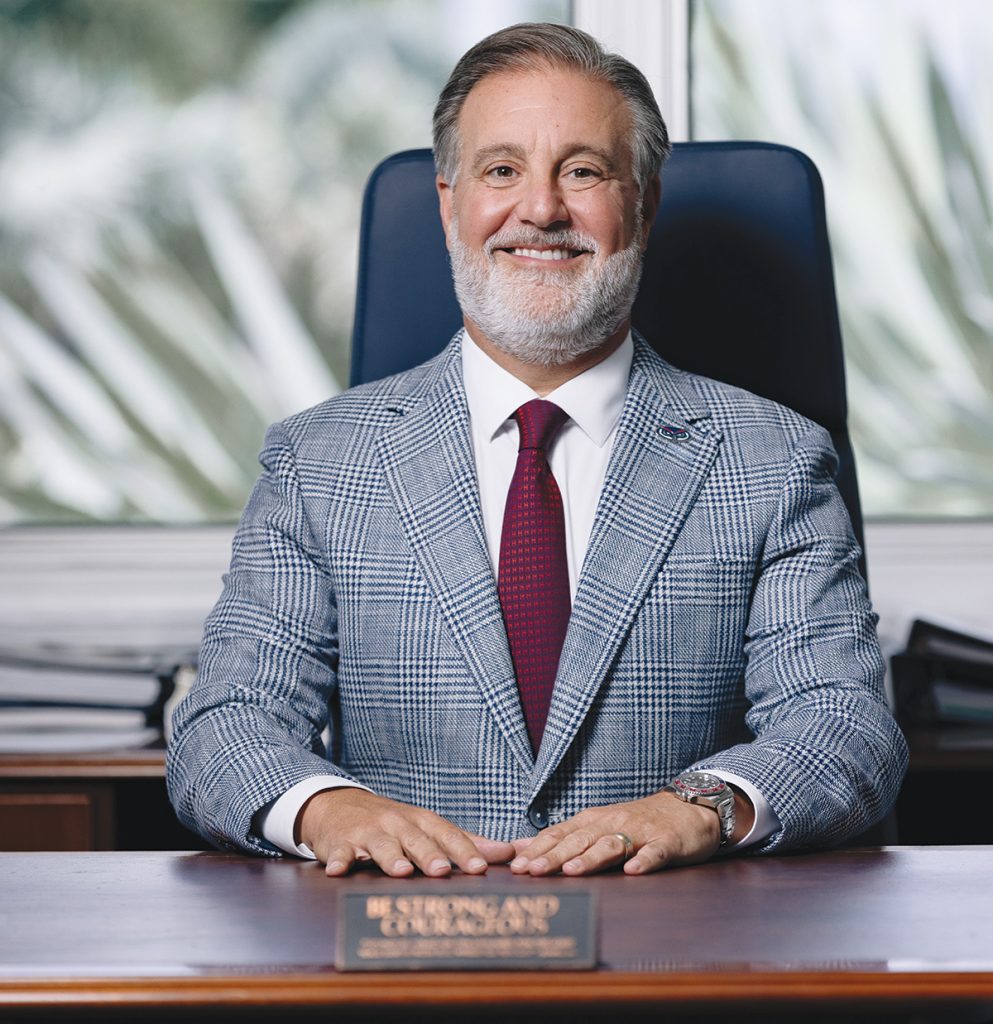
What happened in Boca Raton exemplifies the control that DeSantis has exerted and continues to exert over higher education in Florida. It began with laws against diversity, equity and inclusion (DEI) that the American Association of University Professors called “culture-war-inspired censorship” and has moved into direct control from the governor’s office of who runs the state’s public colleges and universities.
“It’s those sorts of southern red states where we see politics come in most,” Judith Wilde, a public policy and government research professor at George Mason University in Virginia told the Florida Phoenix. “The most egregious by far is in Florida. … DeSantis makes it clear what he wants, and his people make sure that’s what happens.”
FAU Faculty Senate President William Trapani said of the Hasner selection, “We saw that that was the deal. It’s quite clear that the governor and the Board of Governors [which must approve trustees’ choices for president.—Ed.] believe that they need to have control with their friends and political allies.”
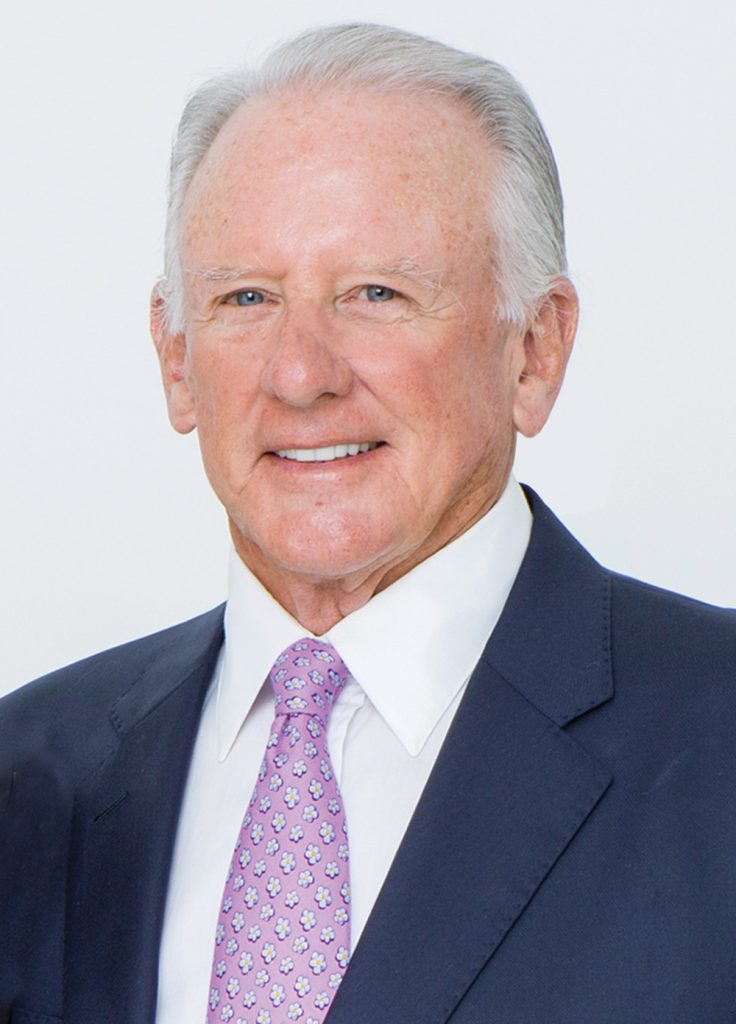
Richard Schmidt served on the first search committee; his family foundation is FAU’s largest private donor. Most notably, it endowed the Schmidt Family Complex for Academic and Athletic Excellence. He continues to defend the first search. The Board of Governors’ stated reason for voiding it—that the committee failed to properly advertise an informal straw poll of applicants—was “bogus,” Schmidt said.
He noted the difference between this search and the one that produced Kelly in 2014. Jeff Atwater, a former state senator and insurance commissioner, was lobbying to be FAU’s president. But the trustees, Schmidt among them, were “pretty unified. We didn’t want a politician.”
Kelly, Schmidt said, was “outstanding in his presidency.” Kelly had been at Clemson University for almost three decades, holding a variety of leadership positions. Hasner—like almost all of DeSantis’ choices—has no higher education experience. He most recently worked for GEO Group, the Boca Raton-based private prison and detention company; Pablo Paez, a GEO Group executive, served on the search committee that selected Hasner. (In 2013, strong student and public opposition killed the company’s deal for naming rights to the football stadium. Critics called the stadium “Owlcatraz.”)
Though that job and some of his comments while in Tallahassee worried some at FAU, Hasner looked good compared to Fine, DeSantis’ initial push for the university’s top spot.
In 2019, as a member of the Florida House, Fine suggested shutting down the University of Central Florida for “five or 10 years” over a spending issue. He also called a political opponent “a whore,” and he has faced ethics investigations. Now a member of the U.S. Congress, Fine responded to the May murders of two Israeli embassy staffers in Washington, D.C. by calling for the U.S. to drop atomic bombs on Gaza.
“The intersection of politics and higher education is a dangerous one,” Schmidt said. Still, he knew Hasner from his service on an advisory board to FAU’s business school. Schmidt said of Hasner, “I’m glad he was acceptable to everyone he had to be acceptable to.”
A History of Interference
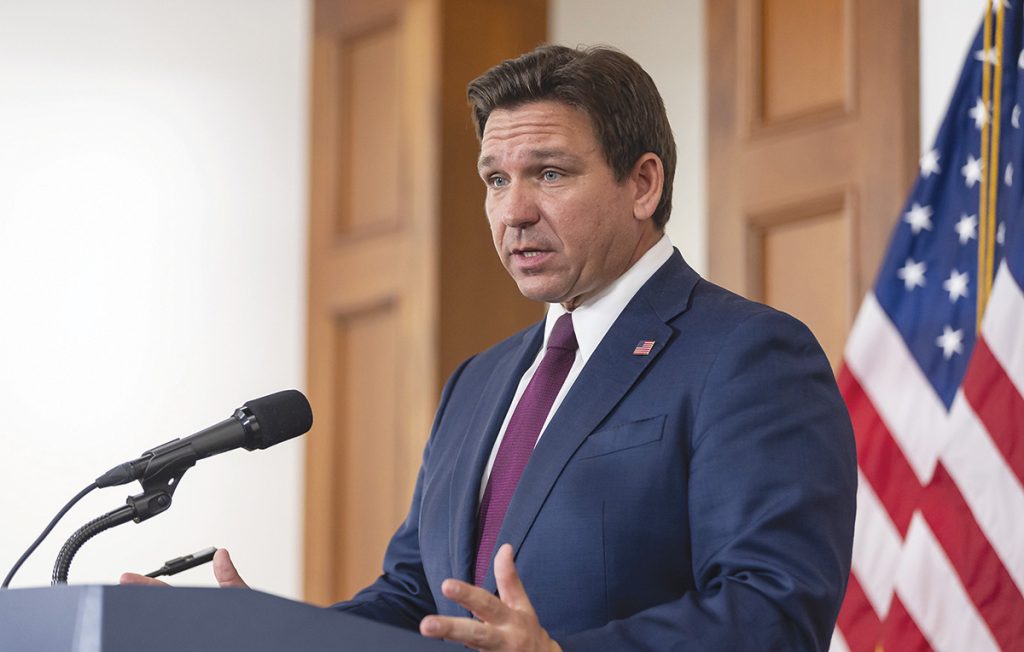
University president politicking is not new. In 1984, well-connected Palm Beach lawyer Marshall Criser called in all his chits to become president of the University of Florida. In 1994, when Florida’s Democrats still had clout, former Education Commissioner Betty Castor—a Democrat—became president of the University of South Florida.
The best recent example is John Thrasher. In 2014, with Republicans in control of Tallahassee, the former Florida House speaker and Senate president declared his interest in the FSU presidency. The search committee didn’t even meet, acknowledging that no credible outside candidates would apply with one of the state’s most prominent Republicans in the mix.
Those examples, however, turned on the person seeking the job, not the governor at the time. In the present-day climate, DeSantis exerts far more control than any of his predecessors.
To do so, DeSantis has exploited a 2022 exemption to the state’s Sunshine Law, keeping the name of presidential applicants secret unless they become finalists. The rationale for this, according to DeSantis and his supporters, is that top-tier candidates wouldn’t apply if their current employer knew about it.
But the FSU search, which took place before the new law, undercuts that argument. McCullough, the eventual choice, had held the second-highest academic post at Harvard University. He had worked at Carnegie-Mellon University, also one of the country’s top schools. All three finalists at FSU were high-level academics. One had been the provost—the No. 2 leadership position—at the University of North Carolina. The other had been vice president for research at Tulane.
Armed with secrecy under the Sunshine Law exemption, DeSantis has taken a different approach. In almost every case, he has chosen a former Republican politician from Florida—like Hasner— who has no experience in higher education.
Three months after the bill took effect, DeSantis engineered the choice of former U.S. Sen. Ben Sasse at the University of Florida. Sasse was the only finalist after what the university called an “exhaustive” search. Sasse lasted just 17 months, leaving amid revelations that he had hired top administrators who never moved to Gainesville but were making $300,000 and $400,000 a year in UF salaries. Sasse also spent lavishly on himself. According to an audit, his $14.8 million spending was a 72% increase from the previous year. This included $6.4 million for a consulting firm that “did not demonstrate the benefit the University received,” and $563,825 for catering eight events.
But no choice has caused more controversy than the installation of former Florida House Speaker Richard Corcoran at New College of Florida in Sarasota. The smallest of Florida’s 12 public universities (710 students in 2023), until recently it was what the Washington Post described as a “quirky” campus where students designed their own studies.
After winning his first gubernatorial term in 2018, DeSantis arranged for Corcoran to be Florida’s education commissioner. In early 2023, DeSantis removed enough New College trustees to create a whole new board majority; at its first meeting, the newly reconfigured board fired the existing New College president and named Corcoran as its interim. Nine months later, Corcoran got the permanent post in a pro-forma vote.
Through Corcoran, DeSantis made New College the whipping boy for what he called “woke indoctrination” on college campuses. New College dropped such courses as gender studies, and books with LGBTQ subjects were tossed in a dumpster.
Corcoran hired a former Tallahassee lobbyist, David Rancourt, to be dean of students; at a comedy club, Rancourt made anti-LGBTQ jokes. Fred Piccolo, who served as spokesman for Corcoran during his time in the House, was hired as the director of marketing in December 2024 and then fired four months later when he was arrested for indecent exposure. It came to light that he had been arrested three times prior to his time at New College with the same charges.
But DeSantis didn’t stop at New College, and this year had a hand in the presidential selection process at a flurry of other schools (see below).
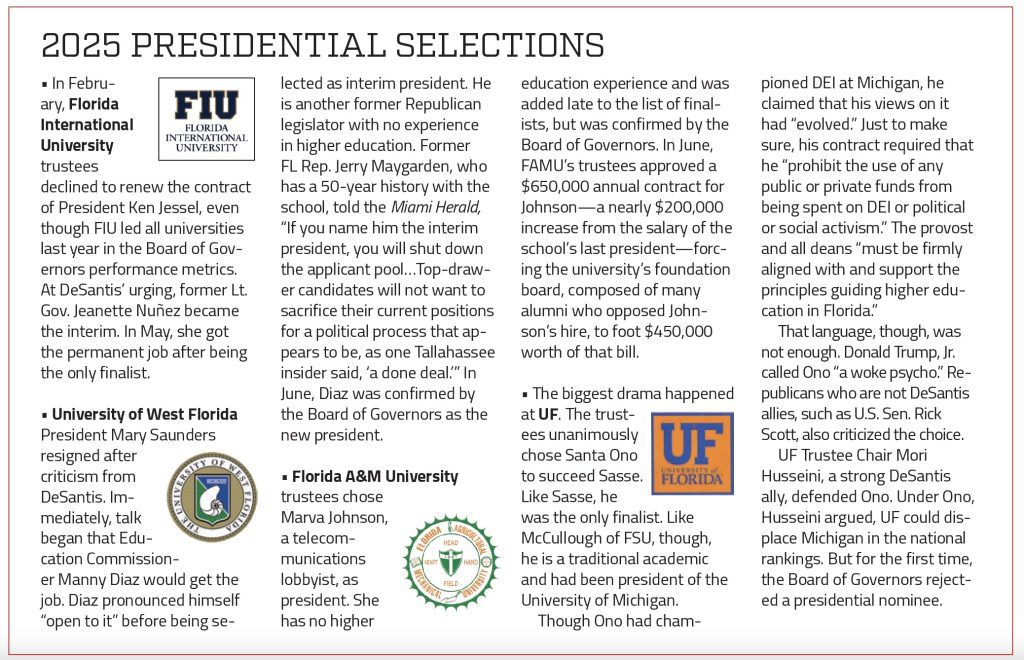
DeSantis had named Marva Johnson chairwoman of the Florida State Board of Education in 2015; her later selection as FAMU president drew opposition from FAMU’s faculty and alumni, as they favored the school’s chief operating officer, which was the same position Stacey Volnick held at FAU before the board named her interim president after Kelly’s retirement. Although Volnick served well over 26 months, sources say she was told not to apply for the permanent job. Due to the Sunshine Law exemption, there’s no way to know whether she did.
Why Randy Fine?
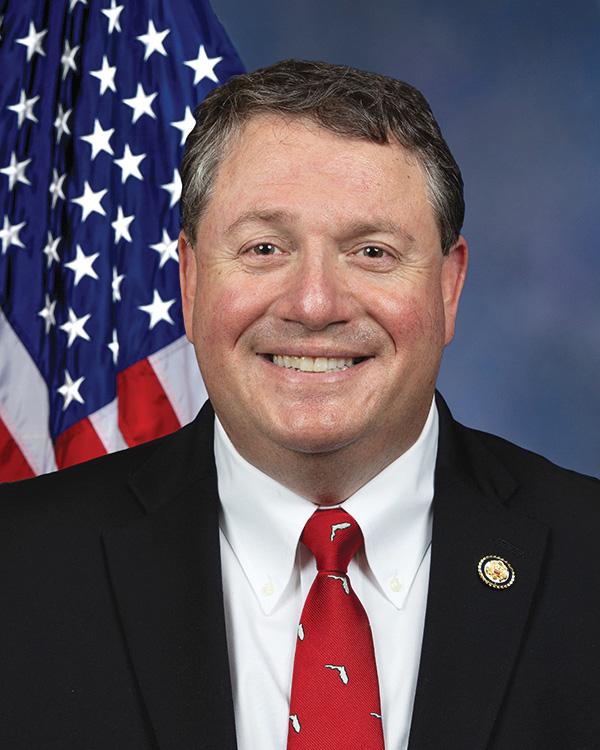
Why did DeSantis call the now U.S. Rep. Randy Fine “a good choice” to be president of Florida Atlantic University? For one thing, they were aligned politically. In 2022, Fine sponsored the House version of what critics called the “Don’t Say Gay” bill—a bill that limits education on issues of sexuality in the classroom—and he also sponsored legislation to ban diversity, equity and inclusion (DEI) in higher education. “These programs are being used all over the country,” Fine said. “Imagine how great our universities will be when we are the only ones who are not.”
But Fine had another key ally—Barbara Feingold. When the presidential search began, she was the vice chair of the FAU Board of Trustees. She wanted the university to open a dental school endowed by her with $30 million and named for her late husband, dental entrepreneur Jeffrey Feingold.
The Feingolds are longtime Republican donors. Sources close to the search tell Boca magazine that Barbara Feingold worked through James Uthmeier—DeSantis’ then-chief of staff and now state attorney general—to secure the presidency for Fine. As the first search was progressing, Fine helped to secure $40 million in the state budget for the dental school, and the Board of Governors fast-tracked approval of the school.
Schmidt chairs the Schmidt Family Foundation, FAU’s largest private donor, and he served on the first search committee. He said, “If I had had to name all of our priorities, a dental school wouldn’t have made the top 25.”
In 2024, after Fine’s rejection, the Legislature rejected FAU’s request for more dental school money. Fine and DeSantis have since had a falling out. Trustees have paused the dental school. Feingold is no longer on the board of trustees.
All Opposed
To put it in perspective, FAU’s rejection of Fine, DeSantis’ initial selection for university president, was one of only two examples of trustees defying the governor on a presidential choice. In May 2023, Florida Gulf Coast University trustees—by one vote—picked someone other than who DeSantis wanted.
DeSantis has made clear that he wants presidents based on ideological purity, not academic success. Speaking this year against House Bill 1321, which would have weakened his control over choosing presidents, DeSantis said, “What the bill would do [is] neuter our ability to keep universities in line and to build off the success.
“Because you know what, if we can get good, strong conservative leaders to be willing to run universities, that should be a good thing. You want the governor involved in ensuring that.”
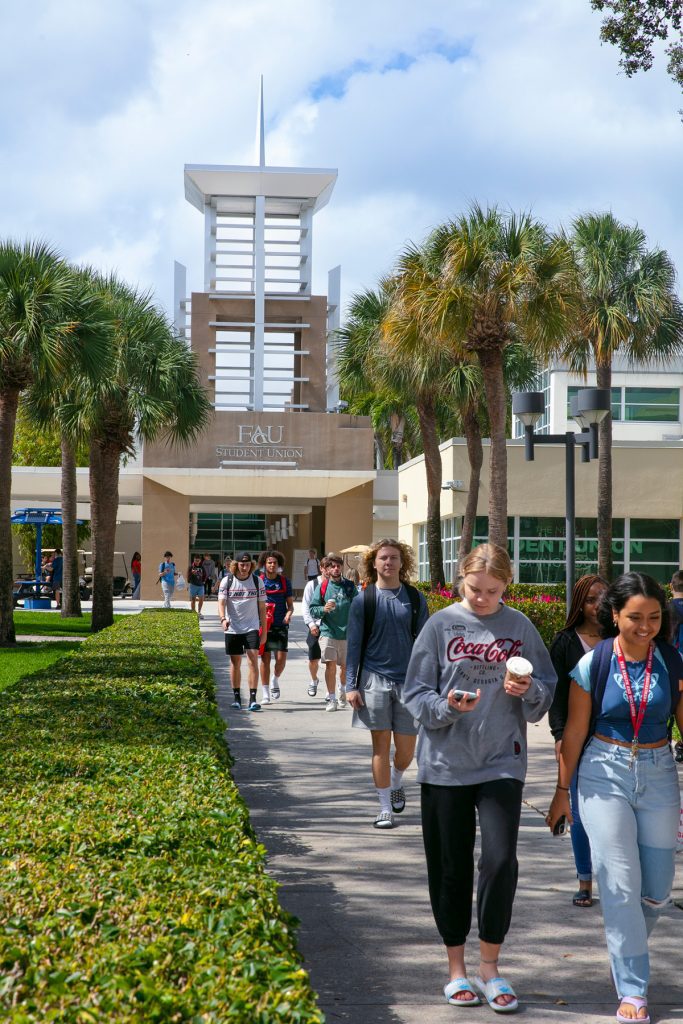
Among other things, HB 1321—which was introduced by Republican FL Rep. Michelle Salzman—would have ended the secrecy around applications and removed the requirement that the Board of Governors ratify a board of trustees’ presidential choice. DeSantis got shriller as the bill passed the House 104-8 before dying in the Senate. HB 1321, he said, would “pave the way for the ‘rewokification’ of Florida’s higher education system.” Supporters “do not want to hold universities accountable. They will revert back to leftist ideology.”
DeSantis has largely bent the Board of Governors and Boards of Trustees to his will; he has appointed or reappointed 14 of the 17 members of the Board of Governors. At FAU, 11 of the 13 trustees are appointed by the governor or the Board of Governors, which DeSantis controls.
However, no one on the Board of Governors has noted that almost all the higher education growth and “success” on which DeSantis wants to build came from the work of traditional academics, not ex-politicians. They include Bernie Machen and Kent Fuchs at UF, Judy Genshaft at USF, Ken Jessel at FIU, John Hitt and Alexander Cartwright at UCF, and Mary Saunders at West Florida. For example, during Saunders’ eight-year tenure, West Florida reached record enrollment and fundraising. But this year, DeSantis appointed new trustees who questioned Saunders about DEI issues and university sponsorship of a drag show.
Going Forward
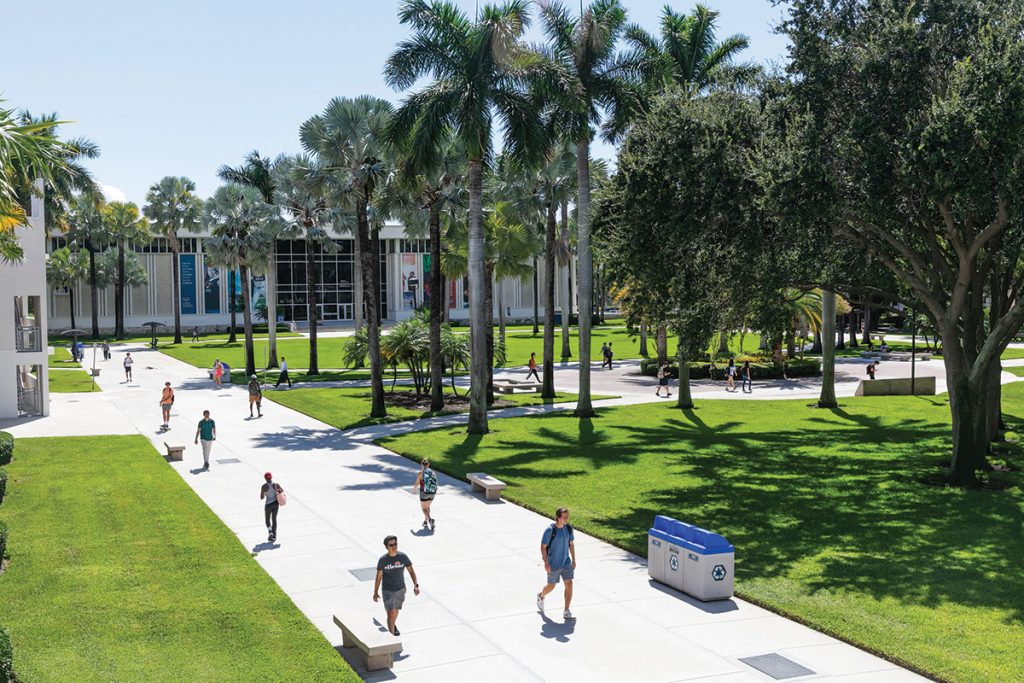
DeSantis will be out of office after 2026, perhaps for another presidential run, but the results of his ideological purge may last much longer. However, multiple FAU sources for this story expressed relief that the university has been able to maintain some degree of autonomy.
Fine is not president. DeSantis did not appoint trustees like the controversial Scott Yenor at West Florida, who described “independent women” as “medicated, meddlesome and quarrelsome.” Yenor also questioned whether women and Jews were qualified for leadership positions in the U.S. Senate, before he resigned in April.
Comparing itself to FIU, Trapani, the FAU Faculty Senate president, said, “The president was deposed. We did not have that.” Hasner, he added, “is not Corcoran at New College. He has shown a willingness to learn. I am cautiously optimistic.” Hasner’s first big test at FAU will be the hiring of a provost, the chief academic officer. The choice will show whether Trapani’s cautious optimism is well-founded.
In a March welcome email from Hasner, the newly installed president wrote, “I am fully committed to listening, learning and collaborating with the entire University community to create a culture where every student thrives, every faculty member has the opportunity to innovate, and every staff member feels valued.”
Boca magazine has tried repeatedly to secure interviews with FAU Trustee Sherry Murphy, who chaired the second search, and Trustee Chair Piero Bussani. Neither have responded.
This story is from the September/October 2025 issue of Boca magazine. For more like this, click here to subscribe to the magazine.







